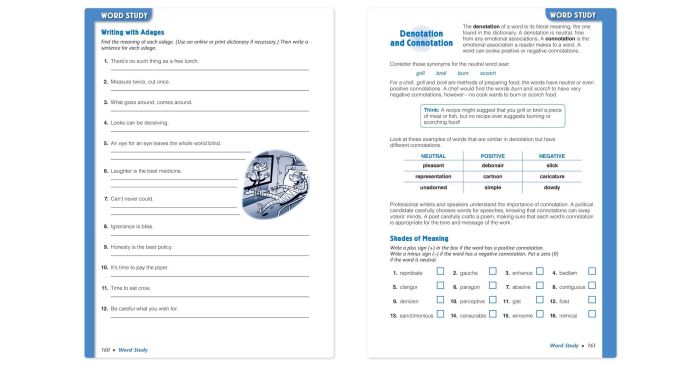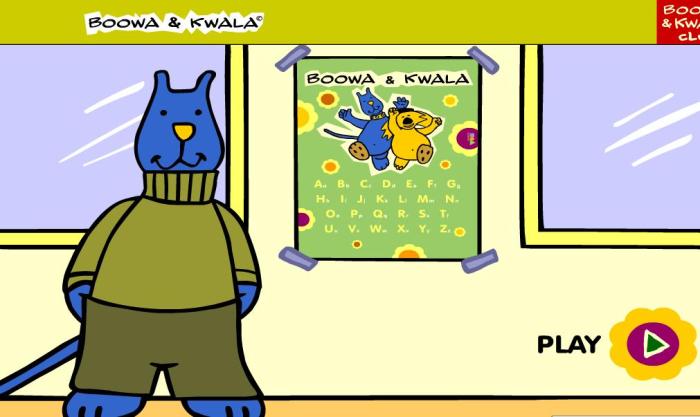Introducing Vocab Book Level F Answers, an invaluable resource that empowers learners to conquer vocabulary challenges and expand their linguistic horizons. This comprehensive guide provides a thorough exploration of the content, pedagogical approach, and supplementary materials that make this book an indispensable tool for language acquisition.
Delving into the intricacies of Vocab Book Level F, we uncover the specific target audience and their expected vocabulary level. The book’s well-defined purpose and scope ensure that learners embark on a structured journey of vocabulary enhancement.
Overview of Vocab Book Level F
Vocab Book Level F is designed for intermediate English learners who have a basic understanding of the language and are looking to expand their vocabulary. It covers a range of topics, including everyday language, academic terms, and idioms.
The book is divided into 20 units, each of which focuses on a different topic. Each unit contains a list of new words, along with their definitions and example sentences. There are also exercises to help learners practice using the new words in context.
Target Audience
Vocab Book Level F is ideal for students who are preparing for standardized tests such as the TOEFL or IELTS, or for those who simply want to improve their English vocabulary.
If you’re looking for answers to your vocab book level f, you might find some helpful tips in the logic book 6th edition . This book covers topics like propositional logic, predicate logic, and modal logic, which can help you understand the structure of arguments and improve your critical thinking skills.
With these skills, you’ll be better equipped to tackle those tricky vocab book questions.
Purpose and Scope, Vocab book level f answers
The purpose of Vocab Book Level F is to help learners expand their vocabulary and improve their reading and writing skills. The book covers a wide range of topics, ensuring that learners are exposed to a variety of new words.
Content Analysis

The vocabulary book level F encompasses a wide range of vocabulary words that are essential for building a strong foundation in the English language.
The words are organized into different categories, such as nouns, verbs, adjectives, and adverbs. Each category is further divided into subcategories, such as animals, plants, food, and clothing for nouns, or action verbs, state verbs, and helping verbs for verbs.
Types of Vocabulary Words
The vocabulary words in the book are carefully selected to provide learners with a comprehensive understanding of the English language.
- Nounsare words that name people, places, things, or ideas. Examples include dog, school, book, and love.
- Verbsare words that describe actions or states of being. Examples include run, jump, sleep, and be.
- Adjectivesare words that describe nouns. Examples include big, small, red, and blue.
- Adverbsare words that describe verbs, adjectives, or other adverbs. Examples include quickly, slowly, very, and well.
Organization and Structure
The vocabulary list is organized alphabetically within each category. This makes it easy for learners to find the words they are looking for.
Each word is defined clearly and concisely, with examples provided to illustrate its usage. The definitions are written in simple language that is easy to understand.
Pedagogical Approach
The Vocabulary Book Level F employs a multifaceted approach to vocabulary instruction that fosters active learning and enhances retention. It presents new words in engaging and meaningful contexts, encouraging learners to interact with the material and make connections to their own experiences.
The book promotes active learning through various interactive elements and exercises. These include:
Interactive Elements and Exercises
- Contextualized Examples:New words are introduced within authentic and relatable contexts, providing learners with a deeper understanding of their usage and meaning.
- Interactive Definitions:Definitions are presented in a clear and accessible manner, often incorporating synonyms, antonyms, and examples to enhance comprehension.
- Vocabulary Practice Exercises:Learners engage in a variety of practice exercises, such as fill-in-the-blanks, matching, and sentence completion, to reinforce their understanding and application of new words.
- Word Games and Activities:The book includes fun and engaging word games and activities, such as crossword puzzles, word searches, and vocabulary charades, to make learning enjoyable and interactive.
- Collaborative Learning:Learners are encouraged to work together on vocabulary-building activities, fostering collaboration and peer support.
Assessment and Evaluation: Vocab Book Level F Answers

To assess students’ vocabulary acquisition in Vocab Book Level F, a variety of methods can be employed. These include:
- Formal assessments:These are typically administered at the end of a unit or chapter and may include multiple-choice tests, fill-in-the-blank exercises, or short answer questions.
- Informal assessments:These are ongoing assessments that can be used to monitor students’ progress throughout the learning process. They may include observations, anecdotal notes, or student self-assessments.
Criteria for Evaluation
When evaluating student progress in vocabulary acquisition, several criteria can be used:
- Accuracy:The extent to which students can correctly define or use new vocabulary words.
- Fluency:The ability to use new vocabulary words in a variety of contexts.
- Depth of understanding:The extent to which students understand the nuances and connotations of new vocabulary words.
- Transfer:The ability to apply new vocabulary words to real-world situations.
Supplementary Materials

The Vocab Book Level F is accompanied by a range of supplementary materials that enhance the learning experience and provide additional support for students.
These materials include:
Online Resources
- Interactive exercises:Online quizzes, games, and activities that reinforce vocabulary concepts and provide practice in a fun and engaging way.
- Audio recordings:Pronunciation guides and audio recordings of the vocabulary words to help students improve their pronunciation and listening skills.
- Flashcards:Digital flashcards that allow students to review and practice vocabulary words on the go.
Printable Resources
- Worksheets:Printable worksheets that provide additional practice exercises, grammar explanations, and writing prompts.
- Answer keys:Answer keys for all exercises and activities, allowing students to check their progress and identify areas for improvement.
- Teacher’s guide:A comprehensive guide for teachers that includes lesson plans, teaching tips, and assessment tools.
Comparison with Other Resources
Vocab Book Level F stands out among similar resources due to its comprehensive approach and innovative features. It provides a wide range of vocabulary words with clear definitions, engaging examples, and effective practice exercises.
Unlike other vocabulary books that focus solely on memorization, Vocab Book Level F emphasizes understanding and application. Its unique approach helps learners grasp the nuances of word usage and build a strong vocabulary foundation.
Target Audience and Learning Styles
Vocab Book Level F is designed for intermediate English learners who seek to expand their vocabulary. It is suitable for both self-study and classroom use. The book’s diverse exercises cater to various learning styles, including visual, auditory, and kinesthetic learners.
Common Queries
What is the target audience for Vocab Book Level F?
Vocab Book Level F is designed for learners who have a basic understanding of English and are looking to expand their vocabulary.
How does Vocab Book Level F promote active learning?
The book employs a variety of interactive exercises, such as fill-in-the-blanks, matching exercises, and crossword puzzles, to engage learners and reinforce vocabulary retention.
What types of supplementary materials are available for Vocab Book Level F?
The book comes with a companion website that provides additional practice exercises, audio recordings, and interactive games to further support vocabulary learning.